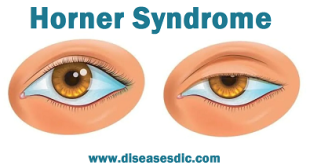Introduction
Hepatitis B (Hep B) is an infection of your liver. It can cause scarring of the organ, liver failure, and cancer. It can be fatal if it isn’t treated. It’s spread when people come in contact with the blood, open sores, or body fluids of someone who has the hepatitis B virus. It’s serious, but if you get the disease as an adult, it shouldn’t last a long time. Your body fights it off within a few months, and you’re immune for the rest of your life. That means you can’t get it again. But if you get it at birth, it’ unlikely to go away.
Types of Hepatitis B
As leading researchers in hepatitis B care, doctors at Stanford have a unique appreciation for the progression of hepatitis B. Accurately determining which form you have helps us select the best treatment.
You may have acute or chronic hepatitis B, depending on how long HBV has been in your blood:
- Acute hepatitis B: You have acute hepatitis B from the time you are first infected until six months afterward. Acute hepatitis B rarely causes liver damage.
- Chronic hepatitis B: Chronic hepatitis B happens when HBV is still in your blood six months after your initial exposure. Only a small number of people end up with chronic hepatitis B. However, this is a serious condition and can lead to chronic liver damage (cirrhosis).
Pathophysiology of Hepatitis B
The hepatitis B virus is constructed of an outer capsule containing HBsAg (hepatitis B surface antigen), an inner core containing HBcAg (HBV core antigen), and the HBeAg (hep B antigen).
As the blood becomes exposed to HBV, the body mounts a cell-mediated immune response by sending cytotoxic T cells and natural killer cells to the virus and release inflammatory cytokines. The greater the immune response, the greater the chance of fighting the virus.
As the hepatocytes are attacked and infiltrated by the HBV, they appear to have a “ground glass” look under histological exam due to the HBsAg infiltrating the cell’s cytoplasm – this is a differentiator for HBV versus other forms of hepatitis.
Because hepatocytes are continually proliferating, the virus is constantly being shed into the blood which contributes to chronic infection.
Causes
It is caused by the hepatitis B virus (HBV). The virus is passed from person to person through blood, semen or other body fluids. It does not spread by sneezing or coughing.
Common ways that HBV can spread are:
- Sexual contact. You may get hep B if you have unprotected sex with someone who is infected. The virus can pass to you if the person’s blood, saliva, semen or vaginal secretions enter your body.
- Sharing of needles. HBV easily spreads through needles and syringes contaminated with infected blood. Sharing IV drug paraphernalia puts you at high risk.
- Accidental needle sticks. Hepatitis B is a concern for health care workers and anyone else who comes in contact with human blood.
- Mother to child. Pregnant women infected with HBV can pass the virus to their babies during childbirth. However, the newborn can be vaccinated to avoid getting infected in almost all cases. Talk to your doctor about being tested for HBV if you are pregnant or want to become pregnant.
Who is at risk?
Certain groups are at particularly high risk of HBV infection. These include:
- Healthcare workers
- Men who have sex with other men
- People who use IV drugs
- People with multiple sex partners
- People with chronic liver disease
- People with kidney disease
- People over the age of 60 with diabetes
- Those traveling to countries with a high incidence of HBV infection
What are the Symptoms?
When you’re first infected, the warning signs include:
- Your skin or the whites of the eyes turn yellow, and your pee turns brown or orange.)
- Light-colored poop
- Fever
- Fatigue that persists for weeks or months
- Stomach trouble like loss of appetite, nausea, and vomiting
- Belly pain
Symptoms may not show up until 1 to 6 months after you catch the virus. You might not feel anything. About a third of the people who have this disease don’t. They only find out through a blood test.
Complications
People with hep B can sometimes develop serious liver problems. These mostly affect people with untreated long-term (chronic) infection.
Some of the main problems associated with hep B include:
Cirrhosis
- Tiredness and weakness
- Loss of appetite
- Weight loss
- Feeling sick
- Very itchy skin
- Tenderness, pain or swelling in the tummy
- Swelling of the ankles
Liver cancer
- Unexplained weight loss
- Loss of appetite
- Feeling very full after eating, even if the meal was small
- Feeling and being sick
- Yellow skin and eyes (jaundice)
Fulminant hepatitis B
- Confusion
- Collapsing
- Swelling of the tummy caused by a build-up of fluid
- Severe jaundice
Diagnosis and Test
Doctors can usually diagnose with blood tests. Screening may be recommended for individuals who:
- Have come in contact with someone with hep B
- Have traveled to a country where hepatitis B is common
- Have been in jail
- Use IV drugs
- Receive kidney dialysis
- Are pregnant
- Are men who have sex with men
- Have HIV
To screen for hepatitis B, your doctor will perform a series of blood tests.
Hepatitis B surface antigen test
A hep B surface antigen test shows if you’re contagious. A positive result means you have hep B and can spread the virus. A negative result means you don’t currently have hep B. This test doesn’t distinguish between chronic and acute infection. This test is used together with other hep B tests to determine the state of a hep B infection.
Hepatitis B core antigen test
The hep B core antigen test shows whether you’re currently infected with HBV. Positive results usually mean you have acute or chronic hep B. It may also mean you’re recovering from acute hep B.
Hepatitis B surface antibody test
A hep B surface antibody test is used to check for immunity to HBV. A positive test means you are immune to hepatitis B. There are two possible reasons for a positive test. You may have been vaccinated, or you may have recovered from an acute HBV infection and are no longer contagious.
Liver function tests
Liver function tests are important in individuals with hep B or any liver disease. Liver function tests check your blood for the number of enzymes made by your liver. High levels of liver enzymes indicate a damaged or inflamed liver. These results can also help determine which part of your liver may be functioning abnormally.
If these tests are positive, you might require testing for hep B, C, or other liver infections. Hepatitis B and C viruses are a major cause of liver damage throughout the world. You will likely also require an ultrasound of the liver or other imaging tests.
What Is the Treatment for Hepatitis B?
Acute hepatitis B usually resolves on its own and does not require medical treatment. If very severe, symptoms such as vomiting or diarrhea are present, the affected person may require treatment to restore fluids and electrolytes. There are no medications that can prevent acute hepatitis B from becoming chronic.
If a person has chronic hepatitis B, they should see their health care provider and determine if medical treatment is appropriate.
What Is the Medical Treatment for Hepatitis B?
Acute hepatitis B infection
Acute hepatitis B infection is not treated with antiviral medications.
- If the infected person is dehydrated from vomiting or diarrhea, a doctor may prescribe IV fluids to help them feel better. Medications may also be used to control these symptoms.
- People with mild symptoms can be cared for at home.
Chronic hepatitis B infection
The degree of liver damage is related to the amount of active, replicating (multiplying) virus in the blood and liver. Regularly measuring the amount of HBV DNA (‘viral load’) in the blood gives your physician a good idea of how fast the virus is multiplying. The treatments now in use are classified as antiviral drugs because they work by stopping the virus from multiplying.
- Antiviral agents, while the best therapy known for chronic hepatitis B, do not work in all individuals with the disease.
- There are several antiviral agents for chronic hepatitis B approved by the U.S. Food and Drug Administration (FDA). New drugs are always being tested and treatment recommendations are subject to change.
- Antiviral therapy is not appropriate for everyone with chronic HBV infection. It is reserved for people whose infection is most likely to progress to active hepatitis or cirrhosis.
- Decisions to start medications for the treatment of hep B are made by the patient and health care practitioner, often in consultation with a specialist in diseases of the digestive system (gastroenterologist), liver (hepatologist), or an infectious disease specialist.
- The decision to treat is guided by results of liver function tests, HBV DNA tests, and, frequently, liver biopsies after a complete history and physical examination.
Treatment is usually started when blood tests indicate that liver functions are deteriorating and the amount of replicating HBV is rising. Many people never reach this point. For those who do, the interval between diagnosis and starting treatment is quite variable.
Is Surgery a Treatment for Hepatitis B?
There is no surgical therapy for hepatitis B.
If liver damage is so severe that the liver starts to fail, a liver transplant may be recommended.
- A liver transplant is a major process and surgery with an extended recovery period.
- It also depends on the availability of a matching donor liver.
- If a liver transplant becomes a possibility for an individual, a health care practitioner will discuss the risks and benefits with them.
Are There Home Remedies for Hepatitis B?
The goals of self-care are to relieve symptoms and prevent worsening of the disease.
- Drink plenty of fluids to prevent dehydration. Broth, sports drinks, gelatin, frozen ice treats (such as Popsicles), and fruit juices are preferred because they also provide calories.
- Ask your physician before taking any medications, even those that are over-the-counter. Some medications depend on the liver, and liver damage may impair the body’s ability to metabolize these drugs. If you are on prescription medications, check with your physician to see if the doses should be adjusted or if the medication should be temporarily discontinued.
- Avoid drinking alcohol until your healthcare practitioner allows it. Individuals with chronic HBV should avoid alcohol for the rest of their lives.
- Try to eat a diet that provides adequate nutrition. Take it easy. It may take some time for your energy level to return to normal.
- Avoid prolonged, vigorous exercise until symptoms start to improve.
- Call your health care practitioner for advice if your condition worsens or new symptoms appear.
- Avoid any activity that may spread the infection to other people (sexual intercourse, sharing needles, etc).
Diet plans for Hepatitis B
A person with hepatitis just needs to follow a healthy, well-balanced diet.
That diet should include:
- Plenty of fruits and vegetables.
- Whole grains such as oats, brown rice, barley, and quinoa.
- Lean protein such as fish, skinless chicken, egg whites, and beans.
- Low-fat or non-fat dairy products.
- Healthy fats like those in nuts, avocados, and olive oil.
What Not to Eat or Drink?
Keep in mind that an unhealthy diet can contribute to liver damage. If you eat too much high-calorie greasy, fatty, or sugary food, you’ll gain weight and fat will begin to build up in your liver. A “fatty liver” can contribute to developing cirrhosis, or scarring, of the liver. Fat in your liver can also interfere with the effectiveness of drugs that target the hepatitis virus.
Avoid the following:
- Saturated fats found in butter, sour cream, and other high-fat dairy foods, fatty cuts of meat, and fried foods
- Sugary treats like cookies, cake, soda, and packaged baked goods
- Foods heavily laced with salt
- Alcohol
Many experts recommend that hepatitis patients also avoid raw or undercooked shellfish, which can harbor viruses and bacteria. You may consider limiting your consumption of processed foods as well, since they can contain chemical additives and high levels of salt.
How is Hepatitis B Prevented?
Testing & Vaccination
- The hep B vaccine offers excellent protection against HBV. The vaccine is safe and highly effective. Vaccination consists of 3 doses of vaccine (shots) over the course of 6 months. Protection lasts for 20 years to life.
- The American Academy of Pediatrics recommends that all children should receive a hep B vaccine starting at birth.
- The CDC recommends a hep B vaccine for persons traveling to countries where HBV is common.
- If you have one or more risk factors for hepatitis B infection, you should get a simple HBV blood test. The blood test will determine whether you are:
- Immune to hep B; or
- Susceptible to hep B and need vaccination; or
- Infected with hep B and need further evaluation by a physician
The basic test for acute HBV infection is called the “Hepatitis B Core IgM Antibody test.” People who have acute hepatitis B show positive IgM antibodies on this test.
Perinatal Hepatitis
- California law requires testing of all pregnant women for hepatitis B infection
- If the mother is HBV-infected, she will pass the infection to the baby during the birth process, unless the baby gets immunized within hours of birth
- Giving the infant HBIG (hepatitis B immune globulin) and HBV vaccine right away will reliably prevent infection of the infant
- Other family members should be tested for hepatitis B too, and given a vaccine if they are not already infected or immune
Healthy Habits
The best way to prevent hep B is with vaccination. Other ways to reduce your risk of getting hep B, hepatitis C, and HIV:
- Do not inject drugs. If you do inject drugs, stop and get into a treatment program. If you can’t stop, never share needles, syringes, water, or “works”
- Do not share personal care items that might have blood on them (razors, toothbrushes)
- If you are a health care or public safety worker, follow universal blood/body fluid precautions and safely handle needles and other sharps
- Consider the risks if you are thinking about tattooing, body piercing, or acupuncture – are the instruments properly sterilized?
- If you’re having sex with more than one steady partner, use latex condoms correctly and every time to prevent the spread of sexually transmitted diseases, including viral hepatitis and HIV.
After Exposure to Hepatitis B
- Hep B infection can be prevented by getting vaccine and HBIG (hepatitis B immune globulin) soon after coming into contact with the virus.
- Persons who have recently been exposed to HBV should get HBIG and vaccine as soon as possible and preferably within 24 hours, but not more than 2 weeks after the exposure.
 Diseases Treatments Dictionary This is complete solution to read all diseases treatments Which covers Prevention, Causes, Symptoms, Medical Terms, Drugs, Prescription, Natural Remedies with cures and Treatments. Most of the common diseases were listed in names, split with categories.
Diseases Treatments Dictionary This is complete solution to read all diseases treatments Which covers Prevention, Causes, Symptoms, Medical Terms, Drugs, Prescription, Natural Remedies with cures and Treatments. Most of the common diseases were listed in names, split with categories.








Full details of the disease not seen. only up to signs and symptoms displayed. I thinks bugs may be present. Remove them soon.
Thank you for letting us know. We will rectify the issue as soon as possible.
please i want to know the difference between active and inactive hepatitis
Hepatitis caused by the HCV virus. This virus is only transmitted through blood-to-blood contact.
Viruses are inactive in your body until they enter the living cell of a host. They will then hijack the cell to make millions, or possibly billions of copies of themselves.
HCV is not transmitted through formal contact, respiratory droplets, sharing food, kissing, or mosquito bites.
All positive HCV antibody results will lead to a second blood test called HCV RNA (PCR). This test will demonstrate whether the virus is still present.
Once the chronic infection is confirmed, the genotype of the virus is established by testing. This will determine the percentile cure rate, the length of treatment, and the preferred medications.
Am affected please can I get a medication
It is highly recommended to consult a physician for an appropriate drug.
Is thy drug for hepatitis B?Can I get the name of it please thanks
Please read the drugs mentioned in the treatment section.
so how can help B, can be treated if you are test them you have it.but you have not yet recommened all the sign giving
is it advice able for one with disease to go in for injection
Getting treatment with proper advice from a doctor is a better one.
I have hepatitis B but many said that is not curable how true it is?
There’s no cure for hepatitis B, but there are several treatments that can help with managing symptoms and reducing the risk of long-term health problems, such as cirrhosis. If you’re at risk of being exposed to the virus, your best bet is to get the hepatitis B vaccine if you haven’t already.
can hapetitis b cause premature ejaculation and weak eraction?
Few kinds of research prove that the HBV virus itself may play a direct role in causing erectile dysfunction.
what are the available drugs at affordable price a patient can take
please read it in the treatment section of the post.
STAY AWAY FROM VEGITABLE OIL. STAY AWAY FROM HOT DRINK. REDUCE PROTEIN CONSUMPTION.
What are the signs and symptoms if one gets hapathitis B infectionm
Please read the signs and symptoms mentioned in the link https://diseasesdic.com/hepatitis-b-causes-complications-and-diagnosis/
is it curablecan it be cured completely
There’s no cure for hepatitis B. The good news is it usually goes away by itself in 4 to 8 weeks. More than 9 out of 10 adults who get hepatitis B totally recover. However, about 1 in 20 people who get hepatitis B as adults become “carriers,” which means they have a chronic (long-lasting) hepatitis B infection.
if a person recovered from hepatitis b can his Hbsag test still be positive?
No. If you have been infected with hepatitis B in the past, you can’t get infected again. However, some people, especially those infected during early childhood, remain infected for life because they never cleared the virus from their bodies. These people are considered to have chronic infection and are at risk for developing severe liver disease.
please affected person can take the vaccine
It is obvious to take vaccine for the persons affected with Hep b.
I want to no if hypertis B can last. for 30 year on human being be for putting him down.
Hepatitis B infection may be either short-lived (acute) or long lasting (chronic). Acute hepatitis B infection lasts less than six months. Your immune system likely can clear acute hepatitis B from your body, and you should recover completely within a few months.
I want to know if only suppliment and antiviral drug can heal hepatitis B. Thanks.
Antiviral medicines that stop or slow the growth of the hepatitis B virus can have serious long-term side effects. And some can make you feel sick while you are taking them.
what kind food the person with hepatitis B will take & the food to avoid.
Please read it in the article here https://diseasesdic.com/hepatitis-b-causes-complications-and-diagnosis/
I’m hbv positive I would let like to know the vaccine name and where can I get please,
Hepatitis B Vaccine is indicated for prevention of infection caused by all known subtypes of hepatitis B virus. Recombivax HB is approved for use in individuals of all ages. Hepatitis B Vaccine is available under the following different brand names: Energix B, and Recombivax HB.
consult your nearby GP.
how many years can hep b chronic people live.
The estimated carrier life expectancy is 71.8 years, as compared to 76.2 years among noncarriers (Figure 5). These results are consistent with other estimates, which indicate that 15% to 40% of HBV carriers die of liver complications.
is plaintain good for hepatitis victim?
Yes, they can eat plantains as a normal person would.
To be kept in mind – if victim have a kidney problem of any kind they would have to check their potassium levels, if potassium levels are high then victim should avoid bananas and consult the nephrologist / dietician for a diet.
Please, help us to list out the food and fruit that HBV patient can eat?
HBV patients are generally advised to consume a well-balanced diet that includes fruits, vegetables, whole grains, and lean proteins. Specific foods like nuts, seeds, fish, and fruits rich in antioxidants can support liver health. However, individual dietary recommendations should be discussed with a healthcare professional based on the patient’s overall health and specific medical needs.
how many times can a child be vaccinated
The standard Hepatitis B vaccination schedule for children typically involves a series of three doses. The first dose is administered shortly after birth, often within the first 24 hours. The second dose is typically given at 1-2 months of age, and the third dose is usually administered at 6 months of age. This three-dose series provides long-term protection against Hepatitis B. It’s important to follow the specific vaccination guidelines recommended by healthcare professionals or public health authorities in your region, as schedules may vary. If a child misses a dose or starts the series later, healthcare providers can adjust the schedule accordingly to ensure the child receives appropriate protection against Hepatitis B.